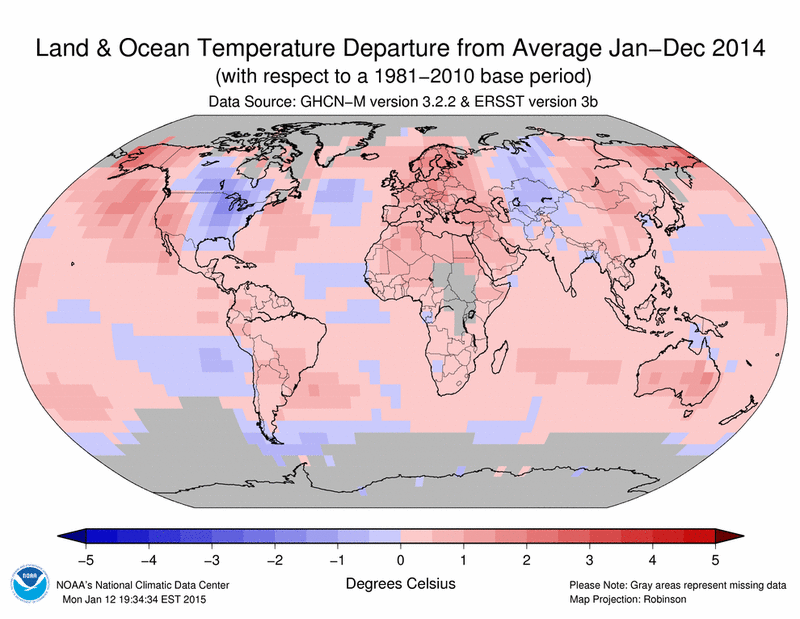http://www.youtube.com/watch?v=WtPkFBbJLMg
By Eyder Peralta
NPR
It’s official: 2014 was the hottest year on record.
The National Oceanic and Atmospheric Administration’s National Climatic Data Center crunched the numbers and came to this conclusion:
“The year 2014 was the warmest year across global land and ocean surfaces since records began in 1880. The annually-averaged temperature was 0.69°C (1.24°F) above the 20th century average of 13.9°C (57.0°F), easily breaking the previous records of 2005 and 2010 by 0.04°C (0.07°F). This also marks the 38th consecutive year (since 1977) that the yearly global temperature was above average. Including 2014, 9 of the 10 warmest years in the 135-year period of record have occurred in the 21st century. 1998 currently ranks as the fourth warmest year on record.”
We’ve been expecting this news since December, but NOAA has now made it official.
